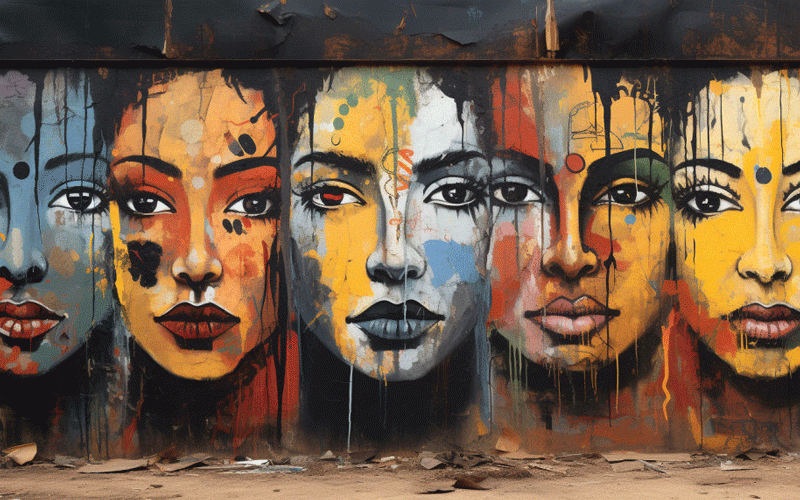
The world of art is a complex and multifaceted realm where creativity, self-expression, and innovation converge.
As artists, curators, and art enthusiasts, we must navigate the intricate landscape of intellectual property rights, protection from harm, and the dissemination of accurate information.
The intersection of ethics and art is a critical aspect of our creative endeavors, influencing not only the work we produce but also the way we engage with each other and the world around us.
At its core, art is about expression and communication.
However, this expression can sometimes be at odds with the rights and dignity of others.
Intellectual property rights, for instance, are a crucial consideration for artists who draw inspiration from the work of others.
The line between homage and infringement can be thin, and understanding this distinction is vital for maintaining the integrity of our artistic practices.
Moreover, art can be a powerful tool for social commentary and critique.
- New perspectives: Resource backed loans and the future of domestic resource mobilisation in Zim
- Challenging simplistic land degradation
- Zvishavane’s people surrounded by mineral riches, but living in poverty
- New perspectives: Resource backed loans and the future of domestic resource mobilisation in Zim
Keep Reading
Yet, it can also perpetuate harm and offense if not approached thoughtfully.
Cultural sensitivity and awareness are essential in ensuring that our work respects the diversity and complexity of human experiences.
This involves being mindful of the cultural significance of symbols, imagery, and narratives, and striving to represent these elements in a way that is respectful and accurate.
The importance of accuracy and truth in art cannot be overstated.
Artistic representations have the power to shape perceptions and understanding of historical events, cultural practices, and social issues.
Therefore, it is our responsibility as artists and curators to ensure that our representations are informed, nuanced, and truthful.
This requires a commitment to research, consultation, and transparency, as well as a willingness to engage in ongoing dialogue and critique.
One of the key challenges in navigating the intersection of ethics and art is the complexity of cultural contexts.
Different cultures have different norms, values, and expectations, and what may be considered acceptable in one culture may be deemed offensive in another.
For instance, the use of certain symbols or imagery may be sacred in one culture but considered profane in another.
As artists and curators, it is essential that we are aware of these cultural nuances and take steps to ensure that our work is respectful and sensitive to diverse cultural contexts.
Another important consideration is the impact of art on individuals and communities.
Art has the power to inspire, educate, and uplift, but it can also cause harm, offense, and trauma.
As artists and curators, we must be mindful of the potential impact of our work and take steps to mitigate any harm that may be caused.
This may involve providing trigger warnings, offering support and resources to individuals who may be affected by our work, and engaging in ongoing dialogue with communities and stakeholders.
Ultimately, the art of ethics is about cultivating a culture of responsibility, respect, and creativity.
By prioritising ethics in our artistic practices, we can create a more vibrant, inclusive, and responsible art world that reflects the values and aspirations of our global community.
This involves embracing best practices such as research and due diligence, collaboration and consultation, clear labeling and documentation, and respect for intellectual property rights.
As we navigate the complexities of ethics and art, we must also recognize the importance of ongoing dialogue and education.
By sharing our experiences, insights, and perspectives, we can build a more informed and empathetic community of artists, curators, and art enthusiasts.
Together, we can create a world where art is not only a source of beauty and inspiration but also a force for positive change and social responsibility.
- Raymond Millagre Langa is an independent researcher, musician, poet, and cultural activist. He is the founder of Indebo Edutainment Trust, a non-profit organization dedicated to promoting arts and culture in education.











